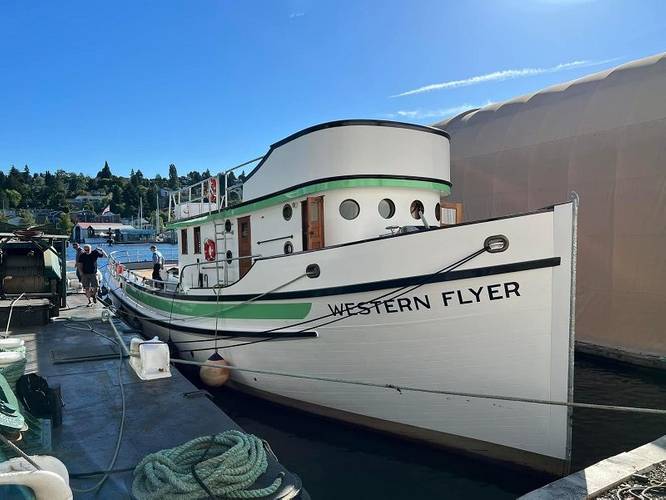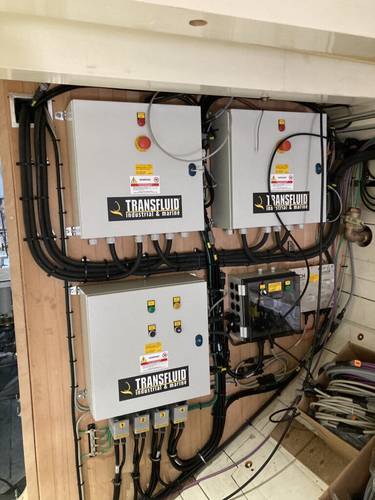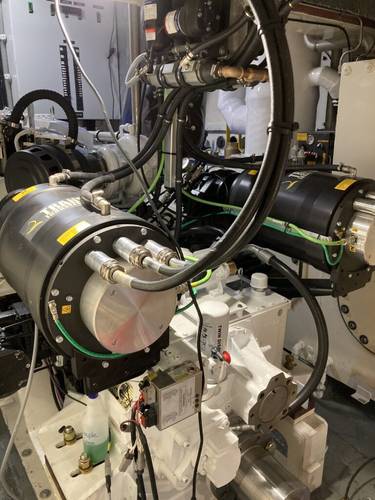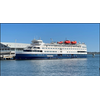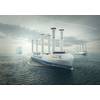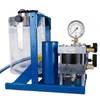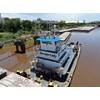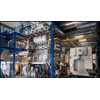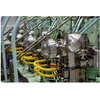Classic Boat Updated with Modern Hybrid Propulsion System
A classic 1930s-built boat with a storied history has been updated with a hybrid propulsion system from Transfluid.
Originally built in 1937 in Tacoma, Wash., the Western Flyer is most well known as the boat chartered by John Steinbeck in his 1940 expedition to the Gulf of California chronicled in The Log from the Sea of Cortez. Called “the most famous research vessel to ever have sailed”, the Flyer is a 77ft wooden fishing vessel that has been restored in Port Townsend, Wash. by the Western Flyer Foundation.
The boat was recommissioned as a fishing vessel, and a showpiece for green technology. Powering the Flyer is a 425-horsepower John Deere diesel onto which is mounted the HM3350 hybrid module. For the electric propulsion, twin 100-horsepower electric machines will allow the Flyer to reach hull speed in electric mode and perform standby operations completely silently. This is extremely valuable when collecting data onsite.
Additionally, the HM3350 features three additional power take-off (PTO) heads which will drive the steering pump as well as a clutchable pump to operate the research equipment. Head extensions for the PTO heads allow for a seamless integration with the Tier 4 diesel and marine gear. Transfluid has provided the propulsion control, CANBUS communication system, and all components to make the complete hybrid supply. The operator can switch on the fly from diesel to electric mode with the press of a button and engage or disengage the hydraulics from the control bridge.
For energy storage, 115 kilowatt hours (kWh) of lithium iron phosphate batteries provide autonomy in electric mode and power the house systems. The boat can charge while underway in diesel mode using the power of the engine, or while docked using shore power.





